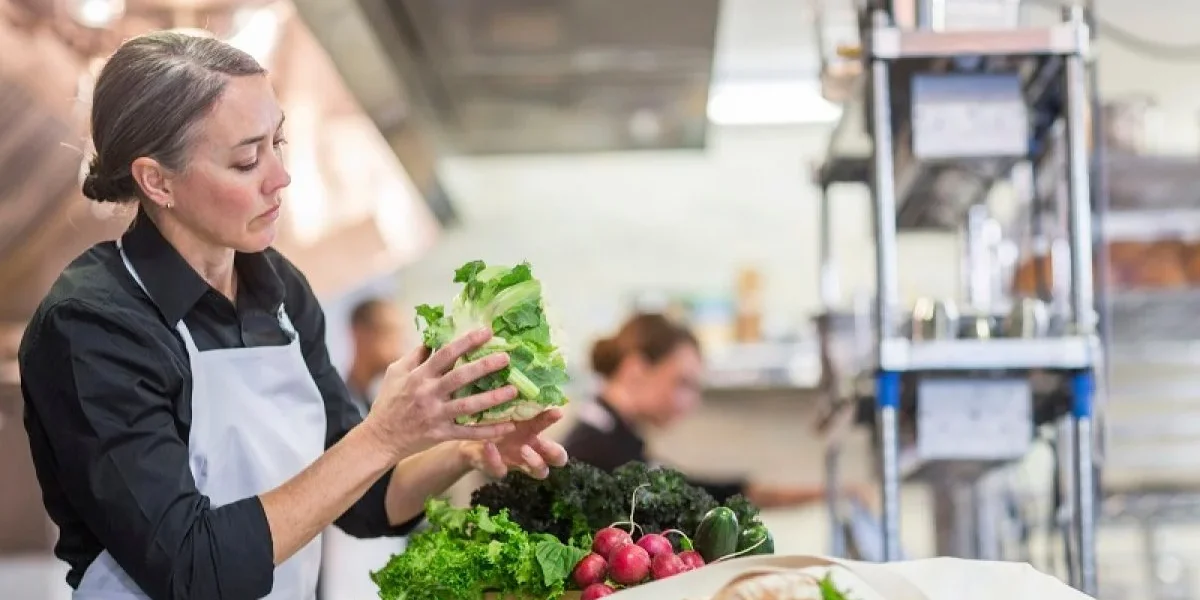In this article we highlight the fundamental principles that support the best restaurants in the culinary industry. Every aspect of a responsible and successful restaurant—from emphasising premium ingredients and upholding the highest standards of food safety to embracing sustainability and celebrating diversity—contributes to the exceptional tapestry that defines it.
Join us as we explore the essential components that extend beyond the plate and point restaurants in the direction of excellence and a positive impact on the food industry.

A restaurant’s key responsibility is prioritising the use of high-quality ingredients. By using superior, fresh ingredients, you can enhance your food’s flavour, character and presentation. It also shows a commitment to supporting local farmers and sustainable farming practices. Here are a few ways to show your commitment to using top-notch ingredients:
Highlight seasonal and local ingredients on your menu.
Give detailed explanations of the methods used to obtain the ingredients.
Consider adding a “farm-to-table” segment to your menu.
Work with local farmers and suppliers to provide the freshest produce.
Running a successful restaurant requires a strict attention to food safety rules as well as the greatest level of cleanliness. By giving hygiene priority, you not only protect your customers’ health but also build a solid reputation as a trustworthy company. Here are a few strategies to ensure food safety and cleanliness:
Implement thorough programs for employee training on safe food handling procedures.
Conduct frequent inspections to identify and address any potential hygiene issues.
Use a detailed cleaning schedule and checklist to maintain cleanliness.
Invest in high-quality food preservation and storage equipment.

By prioritising sustainable sourcing, you promote environmental conservation while simultaneously satisfying the needs of clients who care about the environment. Consider the following methods:
Create partnerships with local producers, fishermen and suppliers who value eco-friendly techniques.
When possible, opt for organic and locally produced foods.
Use waste-reduction techniques like composting and recycling.
Inform customers of your sustainable initiatives through menu descriptions and signage.
Restaurants can create inviting environments that are inclusive of people from all backgrounds. A diverse staff and menu can attract more customers and foster a sense of community. Consider the following:
Offer vegetarian, vegan, and gluten-free options.
Develop your staff’s cultural awareness and respect.
Celebrate numerous culinary traditions with themed events or menu options that are tailored to the occasion.
Create a setting that welcomes individuals with diverse backgrounds.

For a restaurant to succeed, its staff must be dedicated and diligent. Promoting ethical workplace practices is essential for attracting talent and establishing a positive company culture. Here are some methods for promoting moral behaviour at work:
Establish guidelines for equal tip distribution and remuneration.
Give your team access to comprehensive training and opportunities for professional development.
Promote a healthy work-life balance and place a high value on employee wellbeing.
Establish a courteous, imaginative and collaborative work environment.
You need to establish solid relationships with the community if you want your business to be successful in the long run. Participating in the community helps your brand’s reputation while also attracting a loyal client base. Consider the following strategies:
Host distinctive events or themed nights to attract locals.
Partner with local nonprofits or provide funding for local initiatives.
Use social media to interact with customers and spread knowledge.
A varied approach involving high-quality products, hygienic standards, ethical sourcing, diversity and community involvement is required to maintain greatness in the food industry.
By putting these tactics into practice and making use of modern tools like restaurant reservation management systems, you can propel your restaurant to new heights of success. Keep in mind that offering mouthwatering food is only one aspect of the food industry; you also need to provide memorable experiences for your customers.

Unlock the tips that will help you stand out from the crowd and get more bookings!

Learn how to save time, reduce stress and fill your restaurant while you sleep!

Gen-Z marketing coordinator bringing fresh energy to web and graphic design, with a weekend habit of chasing adventure.

Gen-Z marketing coordinator bringing fresh energy to web and graphic design, with a weekend habit of chasing adventure.










Call us
Malta: +356 2033 0096
UK: +44 845 154 3698
USA: +1 (415) 231 3696
Spain: (900) 645443 (Free)
Argentina: +541151990515
Italy: (800) 769470 (Free)
Lithuania: +370 (6) 4721122
Poland: +48732083322
Resources
Call us
Connect with us
About us
Resources